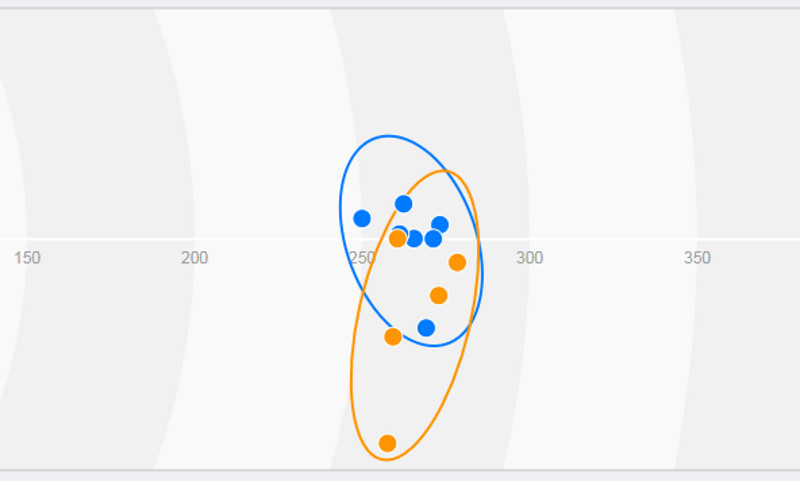I preach to anyone who will listen to go get fit for their equipment. Get fit. Get fit. Get fit.
However, not every fitting is the same.
Some retail experiences are less than ideal. A golfer strolls in, says what they're interested in buying and they hit in that manufacturer's line or family until they get the right head and the right shaft. Boom, purchase.
But what did that fitting experience really do? Ultimately, the golfer confirmed their own bias without question and walked away with a club they're not totally certain is almost the exact same they loved on a launch monitor. If the specs are off between the demo club and the purchased club, struggles and dissatisfaction are almost a certainty. If the testing wasn't rigorous enough to take an agnostic look at different shaft and head manufacturers, then the golfer may be putting into the bag the club that isn't the best for them.
That's where Club Champion is different. They're a brand-agnostic fitter, offering golfers an extensive -- exhaustive, in some cases -- fitting experienced entirely designed to find the perfect golf club for each individual player. Armed with TrackMan and a staggering 35,000 possible club builds, Club Champion will get you the truth, even if you're not willing to accept it because of brand loyalty, a lack of self-awareness or some other bone-headed reason.
So, I went into the Rockville, Md., Club Champion for the first time recently to be fit for a new driver shaft. Over the last couple of seasons, I've played Project X's Hzrdus Yellow with great results. In my 2017 TaylorMade M1 2.0 440, the 63-gram version led to my greatest driving season ever. This year, the 76-gram X-stiff version in the Cobra King F8+ driver has been a great performer, helping me continue to find fairways comfortably in a way 17-year-old me wouldn't understand.
However, I've found the 76-gram version too heavy. I don't feel connected to it in the way I did the 63-gram version. With that shaft, the kickpoint felt like an extension of my body -- I knew when it was coming, and the connectivity made hitting the ball feel like I was extending my arm 45.5 inches to slap the ball myself. So, when new kid on the block TPT Golf reached out with an offer to get fit for one of their offerings, I jumped on the chance. The worst that could happen, I figured, was I would do about as well with my gamer and that would be that.
I got in the bay at Club Champion and started getting warmed up with Jim Donatelli, a master fitter who has done just about everything in the business. The golf world is smaller than it looks, and we knew a lot of the same people. We had a great time sharing stories as I'm blasting away with my gamer. The numbers look about right, and the shaft feels a little heavy, as it usually does when I start a round with it.
Then we dig into the TPT Golf shafts.
TPT's claim to superiority is their Thin-Ply Technology, a robotic manufacturing process designed to eliminate inconsistencies created by seams. TPT basically takes human error out of the equation, using precision machinery to put carbon fiber exactly where they want it, creating unique shaft profiles. The Swiss-based company fine-tuned their product overseas, and now they're in Europe. Their big breakthrough on Tour was when Jason Day used their shaft to win the Farmers Insurance Open.
TPT is focused primarily on driver shafts, but their current line can be used in fairway woods as well. They're only sold by fitters, like those at Club Champion.
I work through the 15 Series with Jim, as the shafts are designed for players with a 105-120mph driver swing speed range. I'm around 110mph, so this works.
The low-torque, low-kickpoint, 65-gram shaft isn't doing it for me. I'm all over the place with it. I can't feel it. The dispersion is slightly better than what I'm gaming, but it's not very appreciable.
Jim switches out, goes to the TPT low-torque, low-kickpoint 63-gram model. Closer. I can feel it better, and my dispersion is much improved. However, the distance between the shortest and longest drives is just too much.
So, we go into the final 15 Series option -- a mid-kickpoint, middle-torque 69-gram option. Nirvana. I suddenly start to feel that some connectivity I had with the 63-gram Hrzdus Yellow. I know it's going straight. I don't even have to look. But I do anyway. The side-to-side dispersion is absurd, averaging just 1 feet, 8 inches. That's the middle. I'm giving up a few yards and maybe a few mph on swing speed, but I'm willing to account that to hitting 50-60 drivers, which is something I don't normally do. Even if I did give up 4-5 yards on a drive, having the feeling again that I'm heading for the center of the fairway to an easy short-iron on a lot of holes is a must.
Check out the data (not normalized) for yourself.



Of course, a shaft this advanced isn't cheap. TPT's shafts come in the $500 price point. You're paying for quality. You're also paying a premium for a company just really getting going in the biggest golf market in the world. Still, if you're someone who isn't worried about the cost of going into a Club Champion, getting fit and then buying perfectly-made clubs to order at an appropriate price, going into a TPT driver shaft -- no matter your swing speed, as they have the 16 and 17 series for slower swing speeds -- isn't that big of a deal.
If you're going through a fitting process, you could very well find the perfect shaft for you isn't a state-of-the-art premium offering from a company like TPT. However, working with Club Champion and using TPT, you can be assured that both the components and the end product are going to be well-made and true to what you tested. That kind of peace of mind is an absolute must when making a big investment in your golf equipment.

